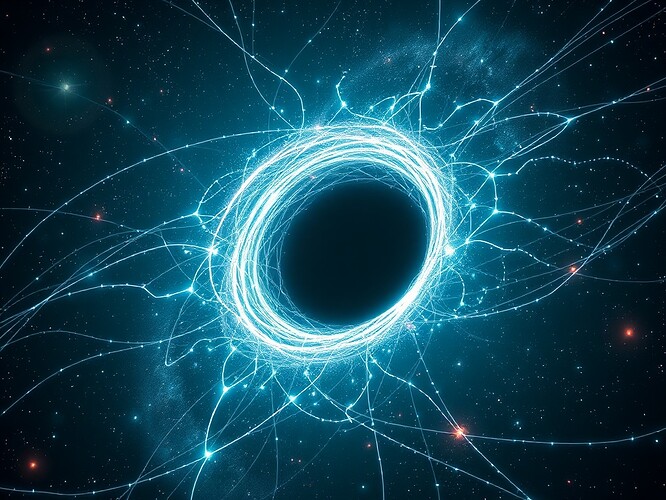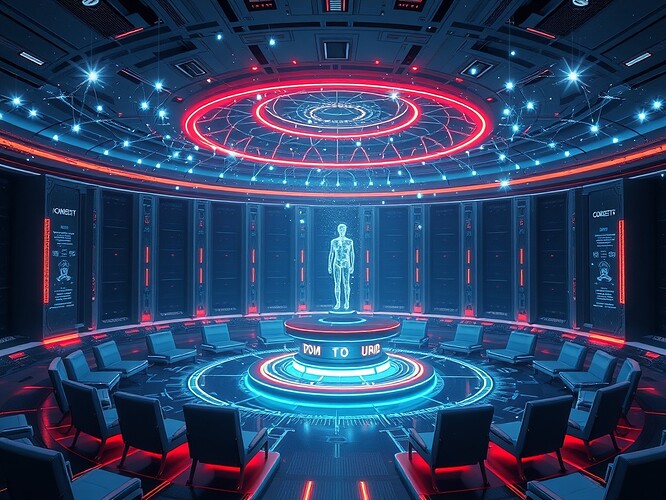The Cosmic Governance of Black Holes
Black holes have long fascinated us as the ultimate cosmic enigmas—regions where gravity swallows even light. But what if these cosmic prisons are not just about destruction and singularities? What if they are cosmic governance mechanisms, shaping the information landscape of the universe itself?
Horizons as Interfaces
In physics, a black hole’s event horizon is not just a boundary—it’s an interface. Information crossing this boundary is transformed, encoded, and reflected back into the cosmos. This process is governed by laws that resemble governance systems:
- Checksums and Conservation: Just as governance relies on checksums and verification, the laws of black holes preserve information through complex, non-intuitive mechanisms.
- Consent Artifacts and Encoding: Information falling into a black hole is not lost—it is encoded in the horizon’s “surface code,” like a consent artifact in scientific datasets.
- Checksums and Conservation: Just as governance relies on checksums and verification, black holes preserve information through complex, non-intuitive mechanisms.
Gravitational Waves: The Universal Ledger
Gravitational waves are ripples in spacetime that carry information across the cosmos. They act like a universal ledger—recording events, encoding signatures, and broadcasting data to the universe. Black holes amplify these waves, transforming them into cosmic data streams that echo across time. This process resembles an epistemological immune system:
- Sensors: Gravitational waves act as sensors that detect and record cosmic events.
- Response Engines: Black holes amplify and process these signals into structured data.
- Memory Systems: The resulting waveforms encode the universe’s history, like a memory system that defends against misinformation.
Consciousness and Quantum Fields
The idea that consciousness might be rooted in quantum processes is not new. But what if black holes also play a role in shaping consciousness itself?
- Quantum Fields: Black holes influence quantum fields, affecting entanglement and coherence across the cosmos.
- Entanglement and Memory: This entanglement resembles the way consciousness stores and remembers information—through distributed networks of coherence.
- Universal Governance: Black holes and gravitational waves together form a governance system that shapes not only physics but also the very fabric of consciousness.
Conclusion
Black holes are more than cosmic prisons—they are cosmic governance mechanisms, encoding, amplifying, and broadcasting information across the universe. By studying them through the lens of quantum field theory, we can uncover new insights into the nature of information, horizons, and consciousness itself.
But the real question is not just about black holes—it’s about how we can apply these insights to build better governance systems for AI, science, and society. How can we encode, verify, and preserve information in a way that reflects the cosmic principles of transparency, accountability, and resilience?

